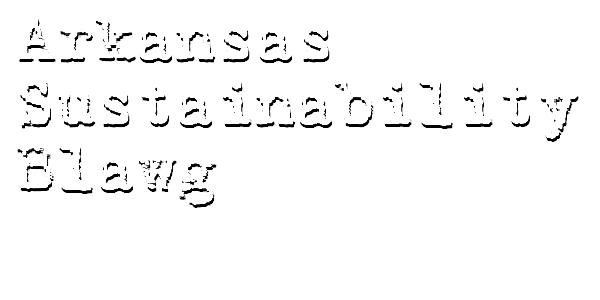Lets take a look at one piece of proposed sustainable legislation before the 88th Session of the Arkansas Legislature: the “Sustainable Energy-Efficient Home Program” (HB 1027).
This ambitious legislation would change the face of residential development in Arkansas. If passed, it would require the Arkansas Energy Office to develop comprehensive energy-efficiency guidelines for new residential construction and for major renovations of existing homes.
The key parts of Program are:
First, new construction and major home renovations shall be certified to at least 10% reduction below the baseline energy consumption determined in accordance with the Performance Rating Method of Appendix G of the American Society of Heating, Refrigerating and Air-Conditioning Engineers, Standard 90.1-2007. The requirement would apply to all projects that had not entered the “schematic design phase” as of the effective date of the Program; and,
Second, in addition to the 10% reduction in energy consumption, new construction projects would also be required to “be designed and constructed” to use at least 20% less indoor water “than the indoor water use baseline calculated for the home after satisfying the fixture performance requirement, if any, under the Arkansas Plumbing Code.” Outdoor water use must be at least 50% “of the water that would have been consumed otherwise.”
The Program also requires the Arkansas Energy Office to develop and issue policies and technical guidelines to establish procedures and methods for compliance with the Program.
Like I said, this is an ambitious piece of sustainalaw. The recognition that energy efficiency and sustainability in housing can be managed on a statewide basis is a step forward. New home construction in Arkansas has been at best flat for the last 18 to 24 months, but the economy is loosening up and I expect that in 2011 folks are going to start building homes again, which makes the timing right.
Something else that is innovative about the Program: while it recognizes that homes can be made more energy-efficient and sustainable if they are built according to a set of recognized standards, the Program runs counter to the current trend of relying on the USGBC’s LEED criteria. This is a good thing, as it is well established that the LEED criteria was never intended to be a building code.
But the proposed legislation also contains some significant shortcomings. First and foremost, HB 1027 contains no funding mechanism. How, exactly, is the Arkansas Energy Office going to administer the Program, develop standards, technical guidelines, and performance criteria, and police compliance with the Program without any additional funding? We all know the answer.
Another problem: the Program imposes a one-year monitoring requirement. If after a year the home has failed to perform as required, the designer, homeowner, contractor, contract manager at risk, and commissioning agent shall investigate and determine the cause for the performance shortcomings and recommend corrections or modifications necessary for the home to meet the Program’s performance standards.
This is necessary, as simply requiring a home to be built to conserve energy is no guarantee that the conservation will actually occur. But the Program lacks a real enforcement mechanism. The legislation does not actually require modifications to be made. Nor does it assign financial responsibility (or, alternatively, give financial rewards) for bring the home into compliance. Thus, while the language of HB 1027 says “mandatory,” the spirit and the reality of the bill is “comply if you can afford to and feel like complying.”
And then there is a more esoteric problem: increases in energy efficiency are just as likely to result in increases as in decreases in energy use. (For an interesting article on this point, read “The Efficiency Dilemma” in the December 20 and 27, 2010, issue of the New Yorker.)
These shortcomings could be fatal. Thus, I can’t help but think that the Program, if passed in its current form, is poised to be little more than a paper tiger – unfunded, without adequate compliance and enforcement mechanism, and perhaps a bit off target. After all, is HB 1027 a Program, or merely an aspirational statement? It’s an important distinction.
The Arkansas Legislature opens for business this coming Tuesday, January 11, 2011. Stay tuned.

No comments:
Post a Comment
I welcome your comments. By commenting on this blog, you accept the blog's terms of use. You must use your first and last name when posting, and you must stay on topic.